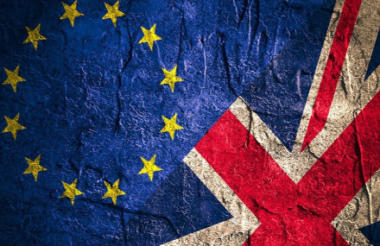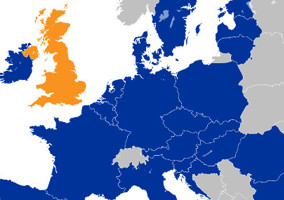The Charity Finance Group says Brexit, as it currently stands, will be bad for both charities and their beneficiaries, as it outlines a six-point plan of what the sector would need to see from a final deal.
The Cost Benefit Analysis of Brexit for charities looks at the potential impact of Brexit on the sector and said that there is a very high risk that charities will be saddled with the cost of Brexit.
It follows a report produced by the policy body for charity finance professionals in August 2017 that said a “clean” Brexit, which would see the UK leave the single market and customs union, poses less risk for charities that other options because it gives the government the flexibility to reform tax rules that have been holding back the sector.
This week's report, however, said that based on the developments in Brexit discussions since its last report, it concludes “that there is high risk that the government will not use Brexit to support the work of the charity sector based on current policy statements. This means that charities will be left with all of the costs of Brexit and with none of the opportunities that could be created through the Brexit process.”
It adds: “We believe that as things currently stand, Brexit will be bad for charities and bad for their beneficiaries.”
'Government exposing the sector to potential harm'
CFG said it has “not taken a position on the merits or otherwise of Brexit” but said it is its job to “highlight those areas where the government is failing to mitigate risk and is exposing the sector to potential harm”.
CFG said it cannot have confidence that Brexit will deliver for civil society. It said that in order to deliver a better outcome, it is calling for a deal in which covers different policy areas of tax reform; funding; public procurement; state aid; workforce; cross-border operations; and economic volatility.
It said that the lack of information about what the UK government would like to do post Brexit means that it is concerned that government will “promise away powers or fail to negotiate a flexible arrangement with the EU, only later realising that it may need these powers to bring about the post-Brexit society that it envisions”.
It said that this is particularly important as “we advance in the talks and get closer towards the deadline, where there may be little time to consider the impact of any agreement on the work of UK charities”.
CFG looked at whether there had been any progress on certain policy areas since its last report. It said that it has had no assurance of progress on tax reform, state aid or workforce, and that there had only been some assurance on funding and procurement.
Six-point plan
The CFG’s six point overview of what it would need to see from a final deal to offer assurances to the sector is:
- The UK has complete freedom to change VAT rules including the creation of new zero-rates, options to tax and a comprehensive rebate mechanism
- Services are funded to the same level that they are currently funded by the EU, with improvements in delivery of funding
- The UK is still able to flexibly pool resources to access EU funds in key areas such as international aid
- State aid is reformed so that it focuses on enforcing competition in real markets instead of tying up charities and social enterprises with red tape in broken or non-functioning markets
- There is greater flexibility on public procurement, so that more grants and contracts are awarded on the full social, economic and environmental vale rather than just on cost
- There is more flexibility in the immigration system, so that charities can continue to hire workers to deliver their charitable objectives
Caron Bradshaw, chief executive of Charity Finance Group, said: “Based on what we know so far, there is a very high risk that charities are going to be saddled with all the costs of Brexit, and none of the potential benefits. There is a huge risk that instead of healing the divisions in society for those who feel left behind, the public’s fears will be proven right - that Brexit is about business and the wealthy and not about ordinary people and the disadvantaged.
“It’s not for CFG to say whether government should continue with commitments to leave the EU but it needs to take action now if UK is to avoid Brexit being a disaster for charities. There is still time - but government is running out of road. With a no-deal scenario looking increasingly likely, we’re deeply concerned that charities and their beneficiaries won’t benefit in any way from Brexit.” she added.
|
Related articles












